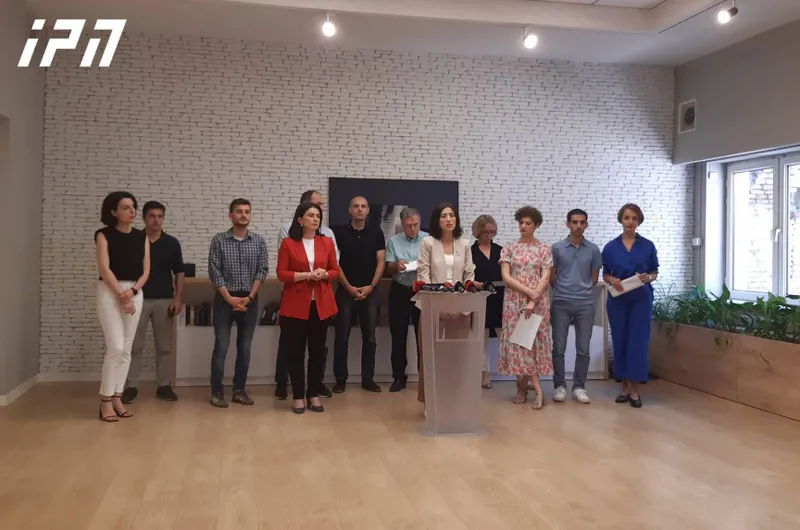
Representatives of civil society organizations presented a plan regarding 12 points of the recommendations of the European Commission.
As the executive director of ISFED, Nino Dolidze, noted at the press conference held at the office of Open Society Foundation, the implementation of this plan is necessary for Georgia to receive the EU candidate status.
According to her, the political will is necessary to fulfill the plan.
"A few days ago, we saw that the government presented a plan on how to get candidate status and what needs to be implemented, although this plan was only about procedural issues and working groups. We did not see concrete steps of what the government means here. We think that this will be another formal process that will take time, and in the end within the 6 months we will not be able to take the steps that Georgia needs today.
That's why we present a plan on what to do to get candidate status.
First, what we see in the recommendations is political polarization. In this regard, we think we should go back to Charles Michel's document, where it was well written that in order to achieve depolarization, power should be distributed and balanced in the Parliament of Georgia - for example, 5 committees should be chaired by the opposition, including 2 such as the budgetary ones.
It doesn't take much time and is very easy to do. In case of political will, this is easily possible.
Constitutional amendments are also important, on which 1 hearing has already been held and it needs 2 more hearings to be adopted, this is also easy to do.
In addition, it is very important to change the electoral legislation, which refers to the independence of the CEC, its chairman and professional members based on consensus. This will be the main thing in order to raise public confidence in the elections.
One of the main issues is justice reform, and we have presented a plan on how to implement it. It is very easy to reform the Supreme Council of Justice or to elect the remaining non-judge members of the Supreme Council of Justice.
We have also presented a vision regarding the fight against corruption - an agency should be created that will unite the mechanisms of fighting corruption in various agencies and will be more effective.
We have the rest of the vision regarding all the points, which will ultimately lead to the 5th point, which is de-oligarchization, that is, the weakening of the oligarch and his rule. This will not completely end oligarchic rule, but it will weaken it.
Ultimately, according to a specific plan, if there is political will, everything is very easily achievable. This does not require the creation of working groups or prolongation of the process, but by taking concrete steps it is possible to implement this plan," said Nino Dolidze.
v-if="article.gallery" v-html="article.gallery"
(adsbygoogle = window.adsbygoogle || []).push({});